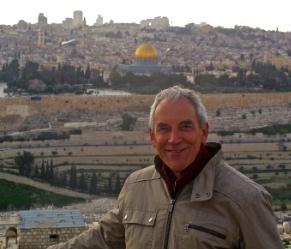Reverend Gary Paterson of St Andrew’s-Wesley United Church in downtown Vancouver was elected moderator of the United Church of Canada at the 41st General Council, held at Carleton University Aug 16.
Paterson was one of three openly gay candidates among 15 hopefuls vying for the position of moderator, alongside Reverend Arlen John Bonnar, nominated by Montreal Presbytery and Reverend Sally Boyle, nominated by Edmonton Presbytery and the Alberta and Northwest Conference.
The United Church’s General Council meets every three years to elect a new moderator. The moderator presides over the council’s meetings and acts as the church’s spokesperson.
“I am so humbled by the trust and the responsibility that you have placed in my hands, and yet I also know that I am simply one person and therefore the trust is in our hands,” Paterson said in his acceptance speech.
Newly minted Right Reverend Paterson then invited his partner of 30 years, Tim Stevenson, to join him onstage. Stevenson became the first openly gay minister ordained by the United Church of Canada in 1992 and currently serves as a Vancouver city councillor.
“I have such a passion for the United Church, and I know that we are facing such challenging times,” Paterson continued. “I’ve always been struck by the fact that when the risen Christ appeared, even the ones who knew him really well didn’t recognize him at first, which says that we may not recognize what a resurrected church may look like.”
The eight-day event was led by outgoing moderator Very Reverend Mardi Tindal. In addition to the election, votes were taken on several motions, including the decision to uphold a ban on products produced in Israeli settlements on the West Bank and in East Jerusalem and a vote that would see the inclusion of aboriginal elements in the church’s official crest.
Moderator nominees were given five minutes to address the 350 voting members of council Aug 13. When Bonnar addressed the flock, he stressed the need for togetherness and fairness, saying that each member of the congregation should be allowed to speak, but they should also take the time to listen.
Boyle recounted the story of a woman in 1950s Saskatchewan who was forced to uproot her shack and 12 children to be closer to the newly implemented electrical grid.
“Revolution means to change, to hope, peace and celebration. That, my friends, is what I believe is the job of all of us. To transform our communities whereever we are. It is our job to look outside our doors and to see that which needs desperately to be changed. I am prepared to begin a revolution,” Boyle said.
The 41st General Council saw a record number of reverends contesting for the top spot in Canada’s largest Protestant denomination. The previous record was nine contenders in 2000.
To be elected as moderator, a candidate must receive 50 percent of the vote plus one. If a majority vote is not cast, a process of elimination is implemented. The candidate who received the least number of votes is excluded from the subsequent ballot and the process is repeated until a majority vote is achieved.
Boyle did not move past the first round of voting. On the second, Bonnar was eliminated. Paterson defeated Rev. John Young on the final ballot.
Paterson will begin his new role as moderator Aug 18, stepping into a three-year, full-time job that garners a yearly salary estimated to be between $119,000 and $135,000.
A voracious reader, Paterson worked an ee cummings composition into his acceptance speech, saying, “We thank you, God, for most this amazing day.”
The General Council concludes Saturday, Aug 18.


 Why you can trust Xtra
Why you can trust Xtra


